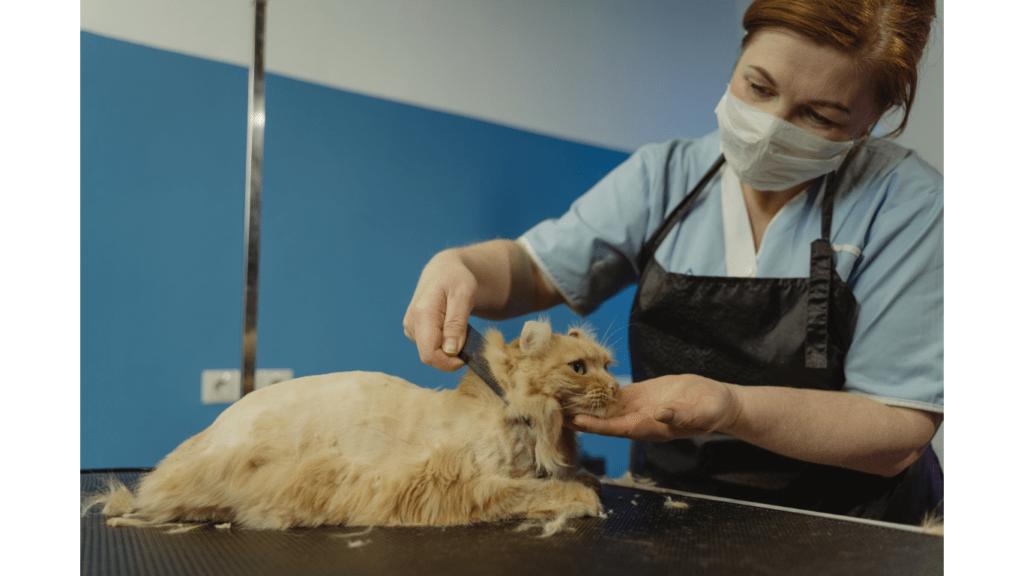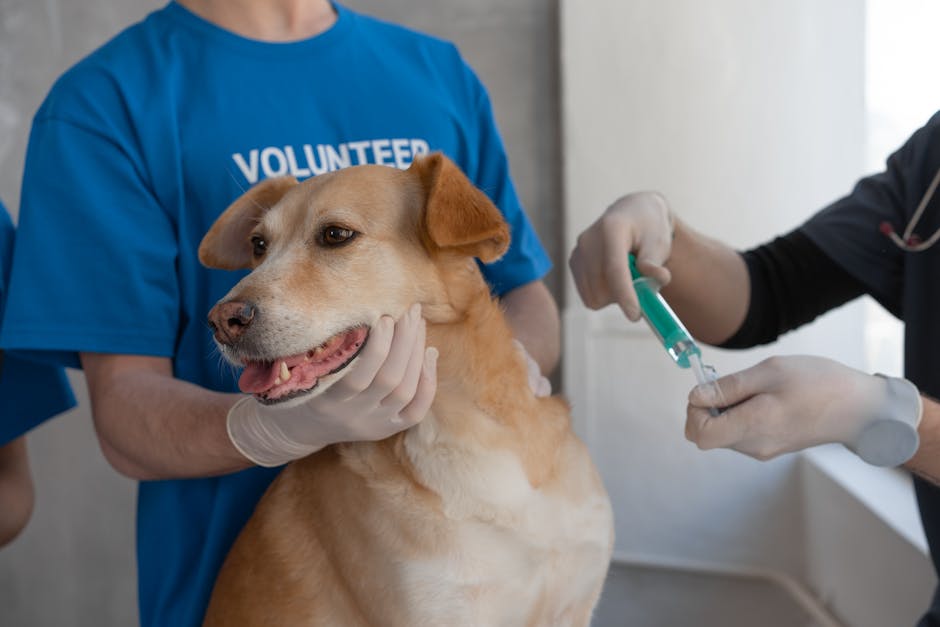Understanding “From Nose to Tail: Nurturing Every Aspect of Your Pet’s Well-being”
1. The Holistic Approach to Pet Care
In pet care, the holistic approach involves considering all facets of a pet’s well-being, encompassing physical, emotional, and mental aspects. It’s about addressing all areas of a pet’s life to ensure they thrive. This means not only focusing on one aspect, such as nutrition or exercise, but looking at the whole picture. By taking a holistic approach to pet care, I strive to meet every need that contributes to a pet’s overall health and happiness.
2. The Importance of Comprehensive Pet Wellness
Comprehensive pet wellness is vital for a pet’s overall quality of life. It involves looking after all aspects of a pet’s well-being, including physical health, emotional happiness, and social interactions. Ensuring comprehensive pet wellness means providing proper nutrition, regular exercise, grooming, mental stimulation, and emotional support. By addressing all these aspects, I aim to create a well-rounded approach to caring for pets and enriching their lives.
Nutrition: The Foundation of Pet Health
- As a dedicated pet owner, I understand the critical role that nutrition plays in maintaining my furry friend’s overall well-being. When it comes to providing the best care for our pets, ensuring they receive a balanced and nutritious diet is key to their health and happiness.
1. Deciphering Pet Food Labels
When selecting the right food for your pet, it’s essential to decipher the information provided on pet food labels. Understanding what ingredients are included in your pet’s food can help you make informed decisions about their diet. Look out for essential nutrients like protein, carbohydrates, fats, vitamins, and minerals to ensure your pet is getting all the necessary components for a healthy diet.
2. Supplements and Treats for Optimal Health
In addition to a well-rounded diet, supplements and treats can play a crucial role in supporting your pet’s optimal health. From multivitamins to joint health supplements, there are various options available to address specific needs your pet may have. When choosing supplements and treats, it’s important to consult with your veterinarian to ensure they are suitable for your pet’s individual requirements.
By understanding how to interpret pet food labels and incorporating supplements and treats when needed, you can ensure that your pet receives the essential nutrients they need to thrive. Prioritizing your pet’s nutrition sets the foundation for their overall health and well-being, allowing them to lead a happy and fulfilling life.
Exercise and Physical Health
As I delve into the aspect of exercise and physical health for pets, I can’t overlook the importance of tailored exercise routines based on different pet types. Understanding that each pet has specific needs when it comes to physical activity is crucial. For example, while a high-energy dog may thrive on activities like running, hiking, or playing fetch, a smaller breed may prefer shorter walks or interactive indoor games to stay fit and healthy. It’s essential to customize exercise regimens to suit the individual needs and characteristics of each pet to promote their overall physical well-being.
Moving on, another vital aspect in maintaining a pet’s physical health is recognizing and preventing common physical ailments. Being proactive in identifying signs of potential health issues can help address them promptly. From keeping an eye out for symptoms of joint pain in aging pets to monitoring weight fluctuations that could indicate underlying health conditions, early detection plays a key role in preventing the escalation of physical ailments. Regular veterinary check-ups, proper grooming practices, and a keen observance of changes in behavior or appetite are essential in ensuring that any emerging physical health concerns are addressed promptly and effectively. By staying vigilant and proactive, pet owners can contribute significantly to their furry companions’ long-term physical well-being.
Mental Stimulation and Emotional Well-being

- Continuing our discussion on comprehensive pet well-being, I’d like to delve into the crucial aspects of mental stimulation and emotional wellness for our beloved companions.
Interactive Toys and Activities
- Engaging our pets with interactive toys and activities is vital for their mental health. Puzzle feeders, treat-dispensing toys, and interactive games not only provide mental stimulation but also prevent boredom and destructive behavior. These activities mimic natural hunting and foraging instincts, keeping our pets intellectually challenged and emotionally content.
The Impact of Routine and Training on Mental Health
- Establishing a consistent routine and incorporating training sessions play a significant role in enhancing our pets’ mental health. Predictable schedules help reduce anxiety and stress, providing a sense of security for our furry friends. Training sessions, whether for obedience, agility, or mental exercises, not only build a bond between pet and owner but also boost the pet’s confidence and mental acuity.
- By prioritizing mental stimulation and emotional well-being through interactive toys, engaging activities, consistent routines, and positive training, we can foster a fulfilling and enriching environment for our pets, ensuring their holistic well-being and happiness.
Grooming and Hygiene
Regular Grooming Practices
When it comes to grooming, consistency is key. Regular grooming practices not only keep your pet looking and feeling their best but also play a crucial role in their overall well-being. Brushing your pet’s coat helps to distribute natural oils, prevents matting, and reduces shedding. It’s a good idea to establish a grooming routine early on to get your pet accustomed to the process. Depending on the type of coat your pet has, whether short, long, curly, or double-coated, the frequency of grooming may vary. For example, long-haired breeds may require daily brushing to prevent tangles and mats, while short-haired breeds can benefit from a weekly brush to remove loose fur and dirt.
Dental Care and Its Role in Overall Health
Dental care is often overlooked but is a crucial aspect of your pet’s overall health. Just like humans, pets can develop dental issues such as tartar buildup, gum disease, and tooth decay if their teeth are not properly cared for. Regular dental care, including brushing your pet’s teeth, providing dental treats, and scheduling professional cleanings, can help prevent dental problems and maintain good oral hygiene. Poor dental health can lead to more serious health issues as bacteria from the mouth can enter the bloodstream and affect the heart, liver, and kidneys. By prioritizing your pet’s dental care, you can contribute to their overall well-being and ensure they lead a happy and healthy life.
Veterinary Care and Preventive Medicine
As a responsible pet owner, I prioritize my pet’s well-being through various means, including veterinary care and preventive medicine. Here’s how I ensure my pet receives the best care possible:
Routine Check-Ups and Vaccinations
I make sure to schedule regular check-ups with my veterinarian to monitor my pet’s health proactively. These routine visits are crucial in catching any potential health issues early, ensuring a prompt intervention if needed. By staying up to date with vaccinations, I help protect my pet from preventable diseases, maintaining their overall health and longevity.
When to Seek Specialized Veterinary Care
In addition to routine check-ups, I understand the importance of recognizing signs that require specialized veterinary care. As a vigilant pet owner, I keep an eye out for any changes in my pet’s behavior, appetite, or activity levels. If I notice any unusual symptoms or behaviors, I seek immediate veterinary attention to address the issue promptly and prevent escalation.
By staying proactive with routine check-ups and being attentive to my pet’s health, I ensure that they receive the necessary care to lead a healthy and happy life. Regular veterinary care and preventive measures are essential components of nurturing every aspect of my pet’s well-being.
Loving Relationships: The Heart of Pet Well-being
The Role of Social Interaction
Social interaction plays a crucial role in enhancing the overall well-being of our furry friends. Regular socialization with other animals and humans is vital for their emotional and mental health. It helps prevent behavioral issues, promotes confidence, and fosters a sense of security in pets. Whether it’s playtime at the park, obedience classes, or interactive toys at home, engaging in various social activities strengthens pets’ social skills and enriches their lives.
Strengthening the Human-Pet Bond
Building a strong bond between pet owners and their companions is essential for the well-being of both parties. Spending quality time together through activities like walking, training, or simply cuddling strengthens the emotional connection. Understanding your pet’s behavior, needs, and preferences fosters mutual trust and respect. Communication, patience, and positive reinforcement are key elements in nurturing a deep and meaningful relationship with our beloved pets.


